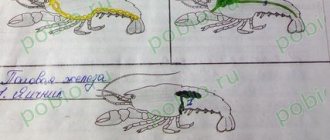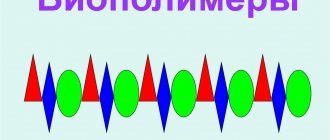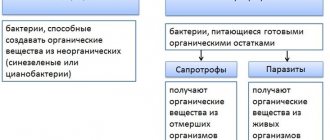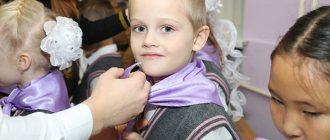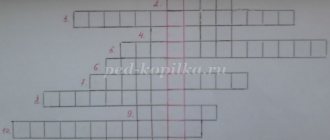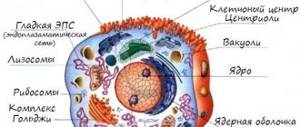Unified State Exam
All lessons
Does your child find biology too boring? Constantly confused about kingdoms and classes? Or has difficulty mastering the human body? Or maybe he plans to take an exam in biology, but is not confident in his knowledge? Just a few lessons on Laidl will completely change the situation - register now.
We offer structured online biology lessons that will not only improve a student’s knowledge of the world around him and increase his grades, but also prepare for the Unified State Exam.
Biology lessons: program features
Biology is one of the most important school subjects, which allows you to convey to your child knowledge about the world around us, the principles of the human body and its interaction with nature. This knowledge also forms the concept of a healthy lifestyle, an environmentally friendly style of thinking, etc.
We have prepared online lessons for students in the following classes:
- Grade 6 Education begins with an introduction to the simplest organisms, which include viruses and bacteria, fungi and some plants. The child also learns about the existence of cells and the structure of tissues.
- Grade 7 Classes allow you to obtain information about animals, study the structure of worms and mollusks, as well as larger representatives of the fauna.
- Grade 8 This course covers knowledge about the human anatomical structure, i.e. its main organs and tissues, skin, skeletal system, etc.
- 9th grade Older children will have to learn about the existence of proteins, fats and carbohydrates, as well as become familiar with the basic rules of genetics.
- Grade 10 The program involves studying the basics of cytology, features of the development and reproduction of living organisms, methods for studying genetics and chromosomal diseases.
- Grade 11 (Unified State Examination) High school students will be able to consolidate the material they have covered and test their existing knowledge “in practice.” And carefully designed tests will help you prepare for the most important exam in your life.
Scientific experiments in biology for younger schoolchildren
An interesting story about how we visited Microworld.
Author of the publication: Natalia Yurievna Murashova, Additional education teacher at MBOU Secondary School No. 58. Purpose: Introducing the intellectual joint recreation of parents and children. Objectives: - To create a desire to spend a day off with your child in an educational and interesting way. — Provide complete information about this type of recreation. — If such an interactive show appears in your city, you will already know what kind of event it is. It will be useful for parents who want to keep up with their children and for biology and chemistry teachers for inspiration. Description: Recently, the “Smart Khabarovsk” project was launched in our city. We hired young and talented scientists to introduce children to science. And among them was my relative Konstantin (honored diploma from Tomsk State University and candidate of sciences), who told us about this.
I won’t leave a link to the show - anyone who is interested will find everything on the Internet. I would like to share my impressions. The two-hour interactive show includes visits to five laboratories by children aged 7-9 years, where they make discoveries and experiments under the guidance of real candidates of science, as well as an interesting lecture for parents. I would like to draw your attention to this.
A very good solution: parents, in the whirlwind of their affairs, pay mainly attention to their children’s homework and try to organize family holidays and vacations in an interesting way. There is simply not enough time for more detailed discussion and debate about science. I judge solely by myself. There is simply no time: no one has canceled cooking and other household chores. Therefore, the organizers want to applaud. According to reviews from parents who attended such a show (one ticket per adult + child), the lectures “invigorate, make you laugh and remember the school curriculum.” Plus great motivation: you can win a free ticket to the next show for your child. You can, of course, just leave your child to develop their horizons for two hours and go on business yourself. But the one who stayed never regretted it. Moreover, the organizers of such a show rightly claim: “You will be prepared for a full discussion of your child’s discoveries today.” This time we took our 7-year-old nephew with us. And he really liked everything too. Each child was given a robe to make them feel like real scientists. In the conference hall, the presenter, with the help of questions, activated existing knowledge and its relevance in today's reality. And our “Reliable Membranes” team gladly rushed to expand their horizons and plunged into the real “Microworld”.
Sashka, having prepared the vaccine, with delight and making “terrible eyes,” said: “I have the EBOLA virus here!!!” Moreover... before the children began mixing the ingredients in test tubes, they were told in detail about the classification of viruses and what vaccines are needed for.
And what deadly epidemics raged in the past and why there is a need for some vaccinations. And that such vaccines should be prepared only with masks and gloves:
In the bacteria laboratory, after the necessary lecture, the children learned what a Petri dish is and what is happening on their seemingly clean hands.
To consolidate the information, we conducted an experiment: we poked our finger on one half of the dish, and then treated our hands with a disinfectant and left a fingerprint on the other half of the Petri dish.
The cup contains a solution that promotes the growth of bacteria, if any.
The guys took the prototypes with the lids tightly sealed home for further observation.
A week later, our bacteria in the “Petri dish” multiplied properly: in one they look like small garlands of balls, in the other... well, you can see for yourself - everything is blooming wildly (now I wash my hands more often).
The next laboratory was devoted to all types of protozoa. For the experiment, it was proposed to compare water from the Amur and water passed through a filtration system.
After filling out the expert report on Amur water, the children, without hesitation, answered the examiner’s questions “what do you see on the screen?” they shouted in unison “Ciliate slipper!!!”
In the laboratory of Ivan Pakushev there was an excellent lecture about how immunity works. In addition, children took part in the creation of a film about the battle of lymphocytes and phagocytes with pathogens.
It was also fun to read the text in the issued diploma.
I was happy for the mother of one of our classmates: after answering all the questions in the quiz for parents correctly, she actually won a free ticket to the next show for her daughter. “I want that too,” I told myself. “Read about electricity, or something... before the next program.”
What treasures did the children take with them this time? A Petri dish with your own bacteria from your hands, each with your own vaccine (for influenza, chickenpox or the Ebola virus), an expert opinion about Amur water and knowledge that will become an excellent foundation for studying biology!
PS Parents are not allowed to travel to laboratories with their children, alas. In 20-25 minutes, getting interested in a lecture and doing an experiment in each laboratory is not easy and requires the full concentration of the entire group. And the cries of “Mom, look what I did!” don't contribute to this. I am lucky: I accompany our group of Irish classmates and take photographs in each laboratory, as I do at all class events. But our children have gotten used to me and are no longer distracted by taking photographs. Therefore, I can see the whole process of immersion in science and record it for the classroom archive. But this is an exception; photographers are not allowed into the laboratories privately. But professional photographers from urban media work on such programs completely free of charge. For example, such photo reports can be found on our website “DVHub-Children”. If in your city you suddenly see announcements about a project like “Smart Moscow”, “Smart Vladivostok” and the like, look on the Internet, read the reviews (there are a lot of them) and decide for yourself whether this format is worth your time and money. And we have no doubts for a long time: we buy and give tickets to relatives as a gift for a birthday or New Year, we go to every show ourselves. https://kladraz.ru/blogs/natalija-yurevna-murashova/nauchnoe-puteshestvie-himija-i-zhizn.html This is much cooler than slot machines on Sundays. PSS I would like to add on my own behalf: the amount for such a show is far from 300 rubles. Five fully equipped master classes with a serious approach to safety rules and cannot be free. Therefore, having bought a ticket a month before the show, parents, as a rule, appreciate the investment of their own money: they read and watch information on this topic on the Internet. To make scientific terms familiar and for my daughter to be interested, we do this every time. In conclusion, a film in the creation of which our children took part.
We recommend watching:
Fostering a culture of behavior in younger schoolchildren (meeting from the cycle of parental education) Spelling dictation in 4th grade Mathematics lesson in 4th grade School Olympiad in mathematics 4th grade
Similar articles:
Lesson - generalization on the topic “Noun”
Summary of a Russian language lesson in 1st grade on the topic: Professions
Methodological development of a lesson on writing a letter to a friend “Hello, friend!”
Skits for elementary school
Classes with 3rd grade students during and after lessons
